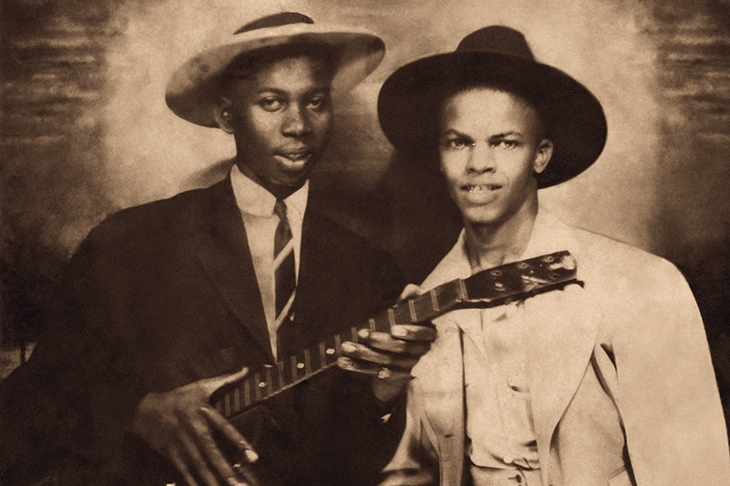Whatever would Robert Johnson, self-styled King of the Delta Blues, have made of the Black Lives Matter movement? His was certainly a life that mattered, but it was lived at a time when black lives mattered not a jot to white America. The circumstances of his death in 1938, at the age of 27 (he was probably poisoned by a jealous rival), demonstrate the disenfranchised existence of any peripatetic black performer in Depression-era USA. The murder was never investigated and his body was dumped in an unmarked grave.
And that would have been that had he not recorded 29 songs that represented the paradigm of delta blues for pale young acolytes such as Mick Jagger and Eric Clapton — and Bob Dylan, who in 1973 dedicated his first collected works to Johnson and later wrote: ‘If I hadn’t heard him, there probably would have been hundreds of lines of mine that would have been shut down.’ Johnson’s influence lingers on in Dylan’s 39th studio album, issued two months ago.
It took until 1961 for all 29 of Johnson’s tracks to be released officially. Before then his memory had been preserved solely by his family of (largely) stepbrothers and sisters, and on rare 78s, and tape transfers of same, by fastidious, almost exclusively white collectors.
Robert Johnson’s murder was never investigated, and his body was dumped in an unmarked grave
Meanwhile, attempts to write his biography would prove as ill-fated as his life. The first serious researcher, Mack McKormick, worked on his appositely named Biography of a Phantom for three decades without publishing any of his findings. Stephen Calt, whose oral biography of Johnson’s contemporary Skip James has few peers, delivered one in 2001, but both UK and US publishers passed on it. And Steve LaVere, the villain of Brother Robert, always claimed he was working on a biography, yet it too came to nothing.
Which makes the publication of this book by a living, breathing 93-year-old stepsister — no matter how slim and painted over by family hearsay — astonishing, and I found Annye Anderson’s judicious remembrance of the man who lit up her childhood a joy.








Comments
Join the debate for just £1 a month
Be part of the conversation with other Spectator readers by getting your first three months for £3.
UNLOCK ACCESS Just £1 a monthAlready a subscriber? Log in